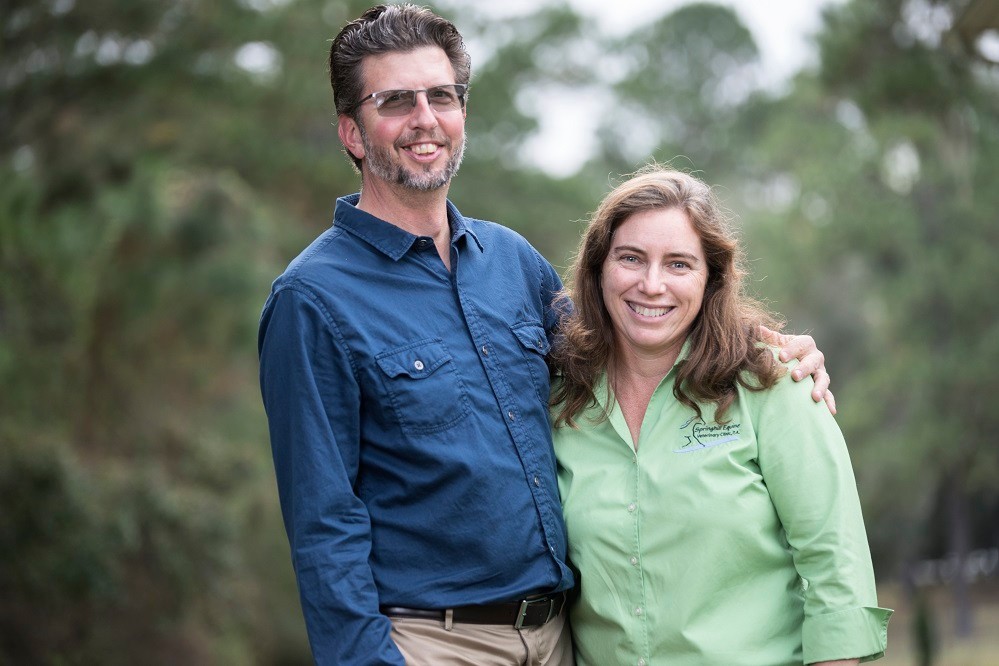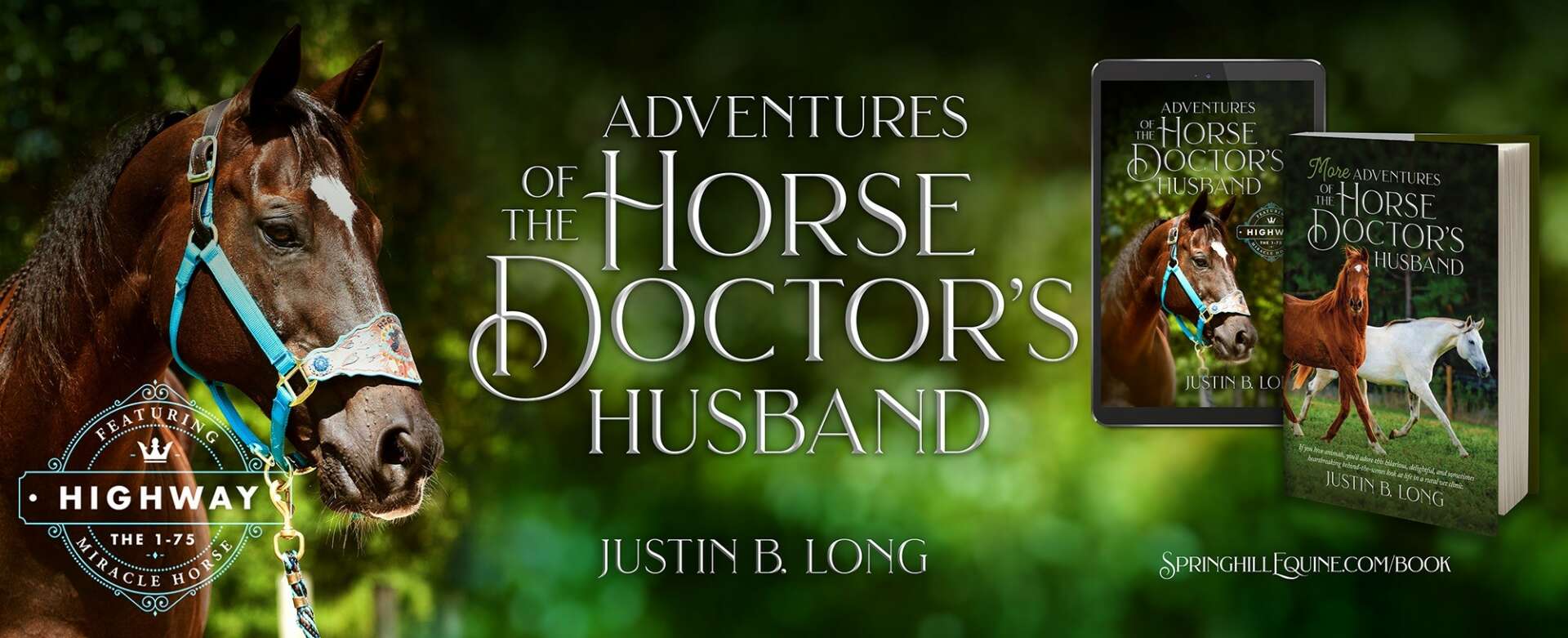We recently connected with Justin B. Long and have shared our conversation below.
Justin B. , looking forward to hearing all of your stories today. Let’s start with a fun one – what’s something you believe that most people in your industry (or in general) disagree with?
When I came on board with my wife’s veterinary clinic in 2015, I had a LOT to learn about how everything works, including people. One of the big things I’ve learned about growing a successful business is how important culture is, and how critical good staffing is. Our vet clinic had mediocre culture at best, and low-performing staff across the board. The staff was also making $10 an hour, and the office manager was making $11, with no benefits. As it turns out, those three things are directly connected. You can’t have a great culture and a staff of high performers and pay them low wages. People who are amazing and know their worth won’t even apply. I’ve spent a lot of time learning how to interview for character, and we raised our starting wage to $17 an hour for techs and receptionists. It took a few years to get rid of all the bad apples and replace them with rock stars, but we now have an incredible team of people. We have a great culture that we all love being a part of, and our clients comment regularly about what a positive experience they have with us. I know the arguments, that it costs too much to do that, but get this: along with a big pay increase, we also started offering health insurance, 401K, paid sick and vacation, free mental health benefits, staff lunch of Fridays, a monthly bonus program, and more. And as a result of focusing on our team and our culture, we’ve tripled our annual revenue. That’s right. In 2015 we grossed $510,000, and in 2022 we grossed $1.5M. People matter.

Justin B. , before we move on to more of these sorts of questions, can you take some time to bring our readers up to speed on you and what you do?
My name is Justin B. Long, and I’m the Hospital Administrator for Springhill Equine Veterinary Clinic. I also have a side hustle of building and managing websites for other small businesses. I married into the veterinary world, and the horse world, in 2014, when I was 38. My wife is Dr. Erica Lacher, and she has owned the Clinic since 2005. She has spent her life building relationships with horse owners and trying to be a full-time doctor and business owner, which is too much to ask of anyone. I’ve made it my mission to take all the non-doctor responsibilities off her shoulders, and to help her grow into the best version of herself. She’s an incredible person, so much so that I have a book series that I’ve written about her and our life called “The Adventures of the Horse Doctor’s Husband,” which has sold over 17,000 copies so far. I’m working on the third book in the series now.
We also have a podcast called “Straight from the Horse Doctor’s Mouth” which has become popular among horse people all over the world. I didn’t expect much from the books or the podcast in the beginning, but both have been powerful factors for our business. They definitely set us apart from other equine vet clinics, as no one else offers anything like it. They are both excellent tools for educating our clients, and that fits into our mission of making the world a better place for horses. They are also both useful for onboarding new clients. Once someone has read the books, or listened to the podcast (or both, most of the time) they feel like they already know and love Dr. Lacher, even though they’ve never met her. They also trust her as an authority on equine medicine, and that is a big deal in our industry. Having a better-educated client base makes our life much easier, and having a great relationship with our clients means long-term repeat business. The books, podcast, and our YouTube channel are all additional revenue sources as well, and in an ever-changing business landscape, that’s a great lifeline to have.
Another unexpected benefit of the podcast is all the potential future veterinarians that we’re able to reach and mentor. The number of equine veterinarians in the US is rapidly declining, and our national/global reach allows young people who are interested in vet med to learn a lot about it, and many of them go on to spend time at our vet clinic, gaining experience on their journey to vet school. We feel like this is really important for the future of the industry, and it’s exciting to be able to create a positive impact across the country.

Any advice for managing a team?
Managing our team (currently 10 people, about to increase to 13-14) has been one of the biggest challenges for me, and by far the most rewarding part of what I do in running the vet clinic. I used to work at a place where everyone hated coming to work, everyone hated the boss, and the only reason anyone showed up was because it paid well. When I took the helm at Springhill Equine, I saw it as an opportunity to create the polar opposite of that toxic environment. I want everyone to love their job, and to be really good at what they do, and to be a great team. I started listening to podcasts like StoryBrand and 5 Voices, and that introduced me to people like Patrick Lencioni, Jim Collins, and others.
Learning Lencioni’s Humble, Hungry and Smart system for interviewing was huge for me. That’s how I started finding the really amazing candidates out of all the applicants. I also learned about the Support/Challenge Matrix from 5 Voices, and how important it is for me to provide an appropriate amount of each for my team. Part of having high performers is trusting them to make good decisions, so I had to give each of my staff members agency to do their job without me looking over their shoulder. That started a perspective shift for me in what my role is on the team.
I’ve totally redefined my job description. Now, when I introduce myself to candidates who want to work for Springhill Equine, I explain that my job is to provide my team with the things they need to excel at their job. It’s not about me leading the charge, or telling people what to do. It’s about giving them the training, tools, and resources that will allow them to grow to their capacity, both as human beings and as employees,
Good leadership is also about emotional support. I find that (just like me) people like to get a pat on the back when they’re doing a good job. We all appreciate recognition, especially from our leaders. So I make it a point to thank people for their hard work, and let them know I see their efforts, challenges, and sacrifices. On the flip side of that, I consider it my job to help bolster the confidence of those who need some help. I’ve been at the very bottom of the self-confidence ladder, and spent a good chunk of my life there, so I know just how important it is to feel good about yourself. One of my team members has a note on her monitor from me. It simply reads, “You’re a bad motherf*cker.” She uses it as a mantra when she’s feeling less-than or beat up by clients, which happens in this and most businesses. I reenforce that note by telling her two or three times a week that I know she’s a bad motherf*cker. If she knows that I believe in her, then that will make it easier for her to believe in herself, and she’s already come a long way down that road. I talk to her about my experiences, and I listen to hers. And if/when she gets ready to talk to a professional, I’ll be ready to pay for it. Therapy has done wonders for me, and for people on my team, and the better we all are as people, the better the business will perform. Our team is in the business of helping horses, but I’m in the business of helping my team.
The last thing I want to mention is food. I have experimented with a lot of different ways to motivate or reward my team. What I’ve learned is that people will try a lot harder to get free food than money. A $50 bonus on Friday is less inspiring than a free $15 lunch. So? When we hit a goals bingo on our Bingo board, we get lunch on Friday. And when we exceed our quarterly income goals by $30,000, the whole team goes out to the most expensive steakhouse in town. Going $30K over is a ridiculous high mark, but I’m here to tell you that we eat a lot of $100 steaks. We check in on where we are every Friday at our staff meeting, and everyone talks strategy on how to get lunch, and what we have to do to get to the steakhouse. Food is a huge motivator, and it’s cheaper than cash bonuses.

Learning and unlearning are both critical parts of growth – can you share a story of a time when you had to unlearn a lesson?
I wrote an entire book about this called “The Righteous Rage of a Ten-Year-Old Boy.” It’s the story of my journey through therapy, where I learned that the insecurities and negative self-beliefs I formed as a child were unconsciously driving my behavior as an adult in the workplace. The book covers a year of my life in which I had to unlearn nearly everything I believed about myself. Some of the things were simple, such as how I like my steak. I always had my steaks well done, or even extra well done. Why? Because that’s how my dad ate his steak. I grew up believing that was how I liked steak, and I never questioned it. And then one day in my late 30’s, I let a friend convince me to try a medium rare steak.
As it turns out, my dad was wrong about steak, and a lot of other things, too. My dad was abusive, and he dominated and controlled me in every way for 18 years, so I launched into adulthood thinking that’s how you lead others. My time in the army just confirmed that, and it was another thing I never questioned. As a matter of fact, I based my whole understanding of how to be a man on that principle. And because of that, I was a classic example of toxic masculinity. I was a horrible team member, because I felt like I had to outperform everyone else, and prove my superiority and value every day, over and over. I was also extremely resentful towards anyone in a position of authority over me. No surprise there, right? It was all because I was drawing my understanding of how to be from my dad, and I was drawing my opinion of myself from the people around me. That’s a recipe for disaster.
This is why I’m such an advocate for therapy. The more I understand myself, the more control I have over who I am. The more I understand myself, the more I can understand other people, like the ones on my team, and my wife. The more I understand myself, the more I can recognize when I’m exhibiting a behavior that I don’t want to engage in, and I can stop and redirect. The more I understand myself, the more compassion I have for myself, and the more I like myself. The more I understand myself, the better of a human being I become.
Contact Info:
- Website: https://JBoydLong.com https://SpringhillEquine.com
- Instagram: @JBoydLong
- Facebook: @JBoydLong
- Youtube: https://YouTube.com/SpringhillEquineVet


